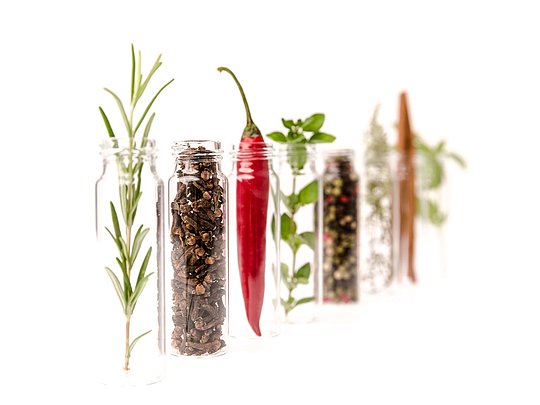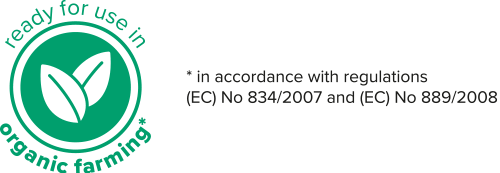Phytogenics in organic farming
Nowadays, environmental issues like rising global temperatures, water pollution, and plastic waste are significant concerns for many of us and are crucial for future generations. It is now time to act to find sustainable and environmentally friendly solutions – especially in the food and feed industry. Find out in this article how phytogenics in organic farming offer a more sustainable, long-term solution.

Organic farming - a new concept?
The concept of organic farming already emerged in the early 1900s through Sir Albert Howard, Rudolf Steiner, and others. They considered that the use of animal manure, cover crops, crop rotation, and biological pest control contributed to a better farming system.
The definition of the word "organic farming" describes a specific standard for growing and processing food. It means that organic farming maintains and replenishes soil fertility naturally without artificial pesticides and fertilizers. In addition, organic food is processed without artificial ingredients, preservatives, genetically modified organisms, or irradiation to preserve the natural integrity of the food.
Market situation
Currently, only 1,5% of the world's agricultural land is organic. But the numbers are rising. Europe still leads the market and shows a significant growth in the organic sector. This tendency also helped to create new positive trends in the USA, especially in the natural add organic Food&Beverages sector. Asia Pacific holds the fastest market growth, with an estimated CAGR of 22,9% through 2022.

Consumers and the COVID-Crises as "Organic Boosters"?
The trend towards organic farming depends on many factors. Especially the Covid crisis made a significant impact on the market. Developments such as the de-globalization of food supply chains, the growing role of food security, increased governmental support, traceability and transparency in food supply chains, and the rise of e-commerce and online retail business support those trends.
Primarily consumers make a significant impact as more and more are convinced that "organic" is part of the solution. They shape the industry by focusing on organic and sustainable foods when looking closely at health, wellness and nutrition.
Challenges from "Intensive and Chemical" to "Extensive and Natural."
Despite these positive trends mentioned earlier, organic farming has not always been seen as a priority as there are some limitations on a technical level. Moving from "intensive and chemical" to "extensive and natural" production raises the critical question of arable lands available without deforestation. Organizing the switch from standard production to organic takes time (sometimes several years), effort, training, and knowledge. Finally, maybe the most challenging gap to be filled, this switch will be possible if all the production chains change from the "Seed to the Plate" with a holistic approach to this crucial challenge for our Planet Earth. Here, phytogenics in organic farming could make a significant impact.

Phytogenics as part of the solution
Phytogenic feed additives (PFAs) are a group of natural growth promoters used as feed additives. In this way, natural phytogenics can help the animals for a better digestibility of raw materials and an improved protection against intestinal challenges. They are commonly defined as plant-based feed additives or botanicals, represent a group of natural substances used in animal nutrition. These substances are derived from herbs, spices, other plants, and their extracts consisting of highly active plant substances. In this way, phytogenics are ensuring sustainable livestock production and food safety on a global scale.

Due to the control and the organization of the supply chain worldwide , it is possible to access plant extracts following these organic farming and process guidelines. So today, we can provide some products in an organic farming certified version.
Interested to know more about Delacon´s organic products? We invite you to contact our Delacon experts.

Alban Llorca
Alban Llorca graduated as a bioengineer at the University of Paris, France has a master’s degree in animal production. After gaining valuable expertise in various companies, Alban worked as Poultry Nutritionist specialized in turkey and layer production. For 10 years he was in direct contact with customers worldwide for technical (product, nutrition, farm management) support. Using Delacon products, especially Biostrong® 510, he joined Delacon in 2010 to promote this product in EMEA & LA region. Since few months, Alban LLORCA took a new position within Delacon as Head of Global Solution.










